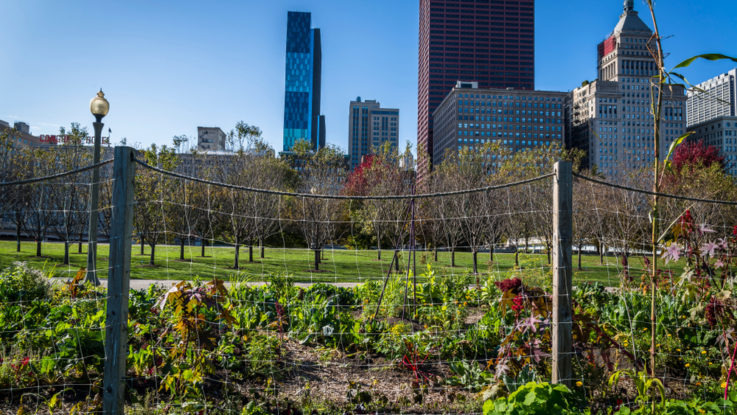
Chicago, IL Mayor Lori Lightfoot released the city’s first Food Equity Agenda in the summer of this year to address social inequities and food insecurity. The program has the primary goals of removing barriers to urban farming, supporting BIPOC (Black, Indigenous, and people of color) farmers and food businesses, and increasing residents’ access to nutrition programs and benefits.
The report released by the city states that food insecurity remains significantly above pre-pandemic levels in the Chicago metro region at 19% overall – with rates amongst Latinx communities at 29% and Black communities at 37%.
“For generations, systemic inequities and racial injustice led to higher rates of poverty and food insecurity in Chicago’s communities of color. The pandemic worsened these disparities,” said Kate Maehr, Executive Director and CEO of the Greater Chicago Food Depository. “As Chicago works to emerge from this crisis, we have an opportunity to create an equitable food system that provides nourishment, health, and economic benefits to every neighborhood.”
The Food Equity Agenda focuses on five high-impact areas:
- Eliminating barriers to food pantry expansion – The City will help to clarify the zoning, permitting, and licensing processes needed to open new food pantries;
- Marketing and maximizing nutrition programs and benefits – The City will increase awareness around federal nutrition programs such as SNAP and WIC, simplify the enrollment process, and expand its SNAP programs to include online grocery orders, prepared foods, local retailers, and farmers markets. Barriers to accessing these programs for people with disabilities will also be addressed;
- Leveraging City and institutional procurement to support local BIPOC growers, producers, and food businesses;
- Eliminating barriers to urban farming – The City will ensure equitable water access for all farmers, provide farming education and employment programs, and encourage community gardens; and,
- Supporting BIPOC food businesses and entrepreneurs, especially by increasing their access to capital. The City will create a public-private “Chicago Food Fund” to help BIPOC entrepreneurs who otherwise lack access to funding.
Plans are underway to formalize a Food Equity Council consisting of City departments, community leaders, academic experts, among others.
“Long before a pandemic struck Chicago, food and nutrition insecurities were already plaguing many of our communities—particularly those on our South and West Sides,” said Mayor Lightfoot. “That’s why I am proud to announce this multi-year agenda, which will combat these inequalities at their core by supporting food entrepreneurs from underrepresented backgrounds and improving our residents’ access to healthy and affordable food. Through this effort, we will be able to build stronger and healthier communities for years to come and root equity and inclusion at the heart of our food ecosystem.”